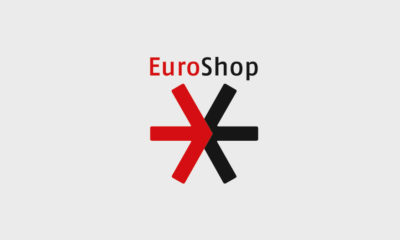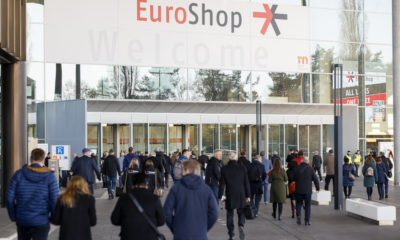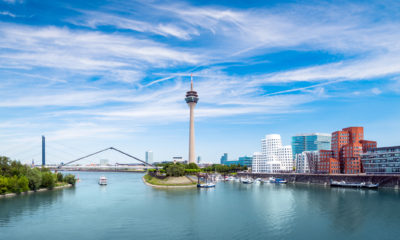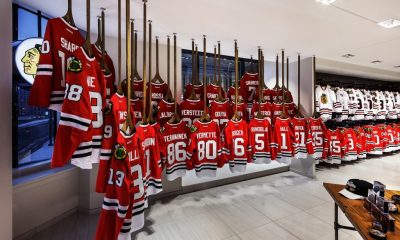High-quality display mannequins have always been a major attraction at EuroShop, the World’s No. 1 Retail Trade Fair. At the upcoming edition from February 16 – 20, 2020 at the fairgrounds in Düsseldorf, Germany, display mannequins will be evaluated under a new aspect: sustainability. There are various approaches: mannequins made of sustainable, recyclable raw materials and the renovation of disused, old mannequins. But there are other, not yet popular, options: relocating production back to Europe, improving transport efficiency and extending the lifespan of the mannequins.
Until the 1950s display mannequins were made of wax or paper mâché. Since then most mannequins have been made of glass-fiber reinforced polyester impregnated with resin (GFRP). These mannequins are mass produced in the Far East but mostly designed and finished in Europe. According to current knowledge, hardened GFRP does not present a health risk and therefore the material is not classified as special waste although it only bio-degrades very gradually. However, processing resin and glass fiber requires a meticulous manufacturing process. Improper handling, insufficient exhaust systems or inappropriate filters at the production sites can cause health problems and add to greenhouse gas emissions.
Alternatively, mannequins can be made of polypropylene (PP). Polypropylene does without the plasticizers that are considered a health concern. But its production also requires chemicals. Mannequins made of PP are less expensive, but their stiffness and degree of detail is inferior to those made of GFRP. Both plastics are recyclable and mannequins should therefore not end up in landfill. Plastics do not decompose like organic substances into compost but remain intact as plastic waste for many decades if discharged improperly.
The goal of Italian manufacturer Bonaveri is to cut CO2 emissions in the production of mannequins. With the slogan “fashion comes and goes, but nature stays forever” the company launched a mannequin in 2016 made of 72% sugar-cane based bio plastics (B Plast®). These mannequins are coated with an orange-oil based varnish (B Paint®). The remaining 28% of their raw materials are plastics that are still required for stability reasons. With this material composition Bonaveri offers a viable alternative to 100% plastic mannequins in terms of durability and stability and this at just 10% higher prices compared to conventionally produced mannequins. In 2016, Bonaveri already reduced CO2 emissions along the complete value chain of mannequin production by 25%. “And we keep aiming for further optimization,” said Business Development Manager Dr. Marzia Ricchieri. In its development work Bonaveri is supported by external institutes such as the Politecnico di Milano ensuring that the complete lifecycle of the mannequin is independently certified.
Some manufacturers even take back mannequins to properly dispose of them. Other manufacturers offer renovation instead of disposal and reintroduction into a circular economy.
Andreas Gesswein, owner of Genesis Mannequins, has done sustainability research for many years. He has manufactured and tested mannequins from 100% natural fibers such as flax, coconut, bamboo, jute, viscose and wood fiber. “100% compostable mannequins do exist – but they are not marketable yet in terms of price and rigidity constraints,” explained Gesswein.
High-Emission Transport
The German company Vertex has concrete plans for manufacturing display mannequins in Germany to avoid high-emission transportation from the Far East. But signals from retail are still missing – retailers are not yet willing to pay for such sustainably produced mannequins.
Advertisement
Andreas Gesswein consults the Fraunhofer Wilhelm-Klauditz-Institut (WKI) for his development work. The institute showed him that glass fiber still has the best strength properties for mannequin production and can be recycled, provided that the individual components of the display mannequins can be separated cleanly at the end of their lifecycle. Today, Genesis mannequins are made of glass fiber and organic resin with a water-based surface coating. This is important because, unlike a varnished mannequin where the paint cannot be separated from the base material, these mannequins can be broken down into components for recycling.
When it comes to recycling properties and the carbon footprint in general, energy consumption also has to be considered. Recycling critics believe this also emits substantial amounts of greenhouse gasses. Even developments such as Bonaveri’s mannequin based on sugar cane can be criticized on account of its raw material sourcing. But all manufacturers agree on one point: there is a lack of clear legislation obliging producers to provide comparable information on the entire value chain.
Another renowned mannequin producer is Moch (Cologne, Germany). With a 112 year business history this producer has established mannequin reconditioning as one of its business lines. According to owner Dr. Josef Moch, anything long-lasting can be sustainable if it is good quality: “True sustainability means not using resources at all. One option is to recondition used mannequins. For our customers this is an attractively priced and up-to-date solution – and we are even creating jobs in the process.”
A Second Life
These mannequins can achieve a second 20-year service life with new faces and new paint. Moch has given thousands of mannequins a “second life” and avoids empty runs for pick-up and delivery by thorough planning and cooperation with competitors.
A comprehensive eco footprint assessment of the reuse and renovation of display mannequins is likely to be as complex and challenging as the evaluation of production and recycling processes.
Genesis mannequins last 10-20 years, according to Gesswein, depending on how they are treated by the user. But mannequin design also follows fashion. “With very active and fashion-conscious brands a mannequin in the main retail area is only used for between three and five years,” stated Andreas Gesswein.
Danny Bonami, owner of the Belgian producer of the same name, focuses on timeless design and the longevity of his mannequins. He offers buyers, who use his mannequins for extended periods, a timeless mannequin design. The faces can be exchanged with help of magnets thereby ensuring a quick change of the look and feel.
Advertisement
Visual merchandising coach Karin Wahl believes display mannequins are indispensable in fashion retail: “Only on the mannequin can you see how the clothes fall.” Display mannequins therefore have a firm place in retail and manufacturers’ efforts to come up with sustainable production solutions are evident. They follow different approaches. Due to the difficult framework conditions such as the lack of legislation, however, it is currently not possible to present simple and comprehensive solutions on the subject of sustainability.
“Considering that a brand operating 100 stores has 5 mannequins in each store this already adds up to 500 mannequins made of crude-oil based plastics. Customers have to be educated about the importance of sustainable mannequins,” remarked Dr. Ricchieri. Bonami will dedicate part of its stand at EuroShop 2020 to this topic.
EuroShop 2020 will present innovations on about 1.3 million square feet of net exhibition space. Entrance passes can be purchased online at www.euroshop-tradefair.com at reduced rates: 1-day tickets cost Euro 60 each (Euro 80 on show site), 2-day tickets are Euro 100 (Euro 120 purchased on show site) and 5-day tickets cost Euro 150 (Euro 180 at the show). Tickets include free use of all publication within the VRR transport system to and from EuroShop.
For EuroShop’s online magazine with news, interviews, reports, technical articles, studies, photo galleries and videos related to topics and trends in the international retail sector all year visit https://mag.euroshop.de/en/
For further information on visiting or exhibiting at EuroShop 2020, contact Messe Düsseldorf North America, Telephone: (312) 781-5180; E-mail: info@mdna.com; Visit www.euroshop-tradefair.com and www.mdna.com; Follow us on twitter at http://twitter.com/mdnachicago
For hotel and travel information, contact TTI Travel, Inc. at (866) 674-3476; Fax: (212) 674-3477; E-mail: info@ttitravel.net; www.traveltradeint.com
Advertisement
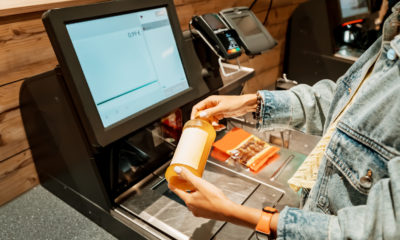
 Headlines5 days ago
Headlines5 days ago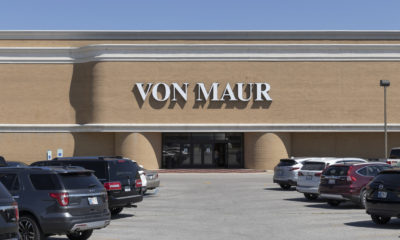
 Headlines2 weeks ago
Headlines2 weeks ago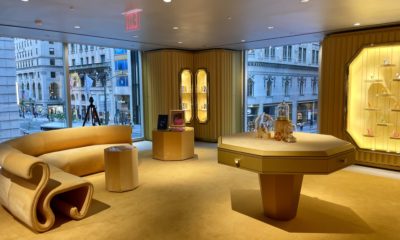
 Eric Feigenbaum2 weeks ago
Eric Feigenbaum2 weeks ago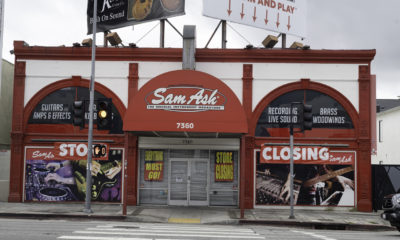
 Headlines1 week ago
Headlines1 week ago
 Headlines2 weeks ago
Headlines2 weeks ago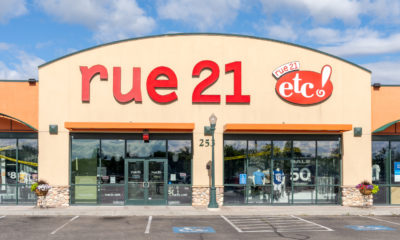
 Headlines1 week ago
Headlines1 week ago
 Headlines4 days ago
Headlines4 days ago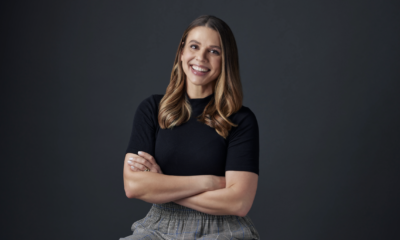
 Blogs & Perspectives2 weeks ago
Blogs & Perspectives2 weeks ago
